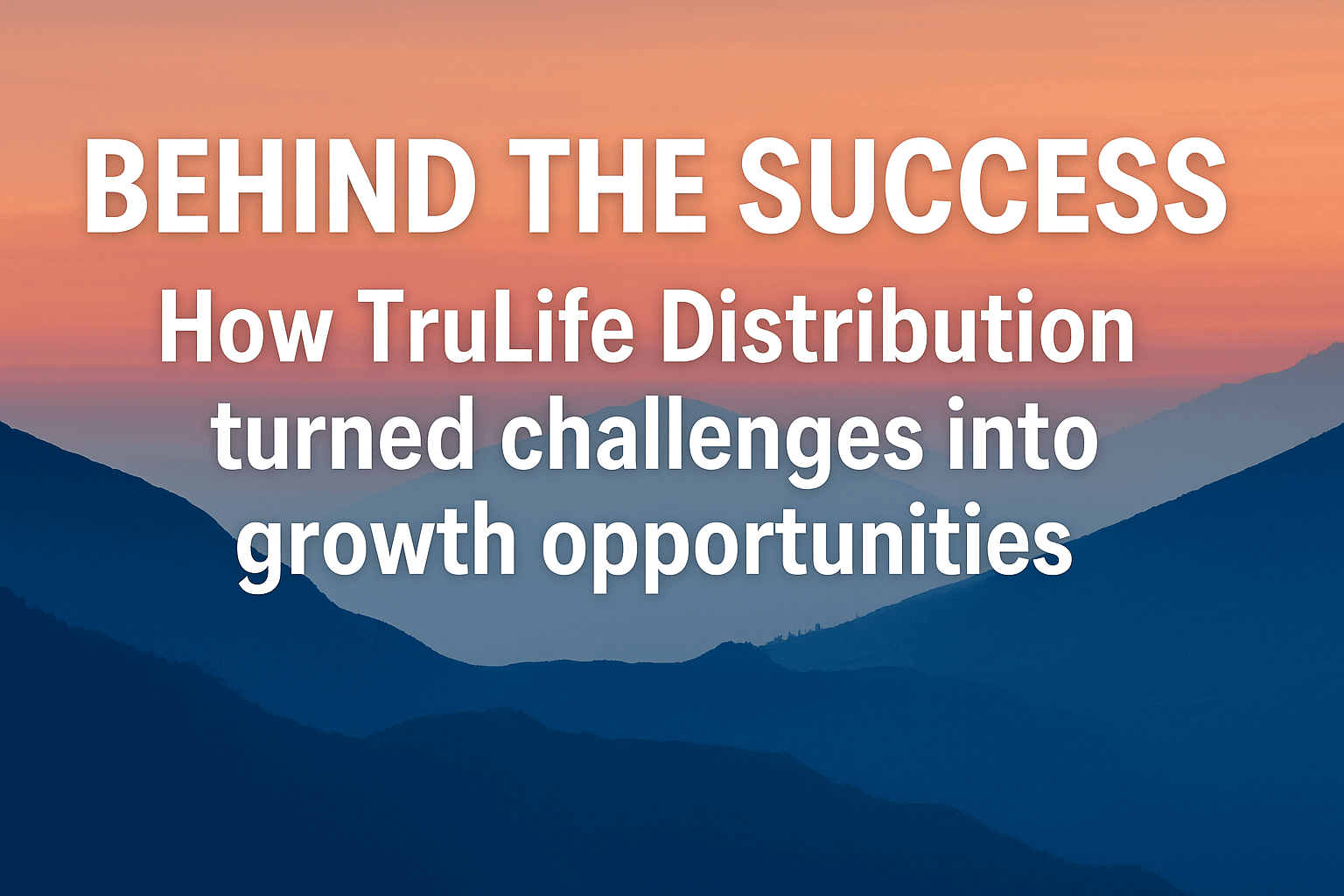In today’s highly competitive business landscape, companies must navigate not only market pressures but also legal, regulatory, and reputational challenges. TruLife Distribution, a U.S.-based company operating in the health and wellness sector, provides an example of how such challenges can shape an organization’s development. Founded by Brian Gould, TruLife aimed to help domestic and international brands enter and grow in the U.S. market. While the company applied generations of family experience in the health and wellness industry, it soon faced an unexpected legal challenge that would test its resilience.
The Unexpected Test
TruLife Distribution’s major challenge arose when a competitor filed a lawsuit alleging unfair business practices and misuse of confidential information. Legal disputes like these are not uncommon in industries where companies compete for market share, intellectual property, and customer loyalty. However, litigation can have far-reaching consequences for the organizations involved.
In the case of TruLife Distribution, the legal action presented both operational and reputational risks. Lawsuits can distract from day-to-day business priorities, create uncertainty for clients and employees, and damage a company’s public image – regardless of the merits of the claims. For businesses working in sectors like health and wellness distribution, where client trust is critical, allegations of unfair practices can be particularly concerning, even if ultimately unfounded.
According to public reports and company statements, TruLife focused its efforts on two primary objectives: responding appropriately through legal channels and maintaining continuity in its service delivery. The company’s leadership team worked closely with legal counsel to address the allegations while striving to minimize disruptions to client operations.
Transparency and Communication
One of the most significant factors in how a company weathers a legal dispute is its approach to communication. In TruLife Distribution’s case, the company adopted a strategy of openness, choosing to inform clients about the situation rather than leaving them to rely on rumors or incomplete information.
This included providing clients with updates during key phases of the legal proceedings and offering reassurances about the company’s continued ability to meet its contractual obligations. By addressing questions and concerns directly, TruLife aimed to maintain trust and demonstrate accountability.
Clients, according to some accounts, appreciated this approach. Several reported that the transparency helped reinforce their confidence in the company during a period of uncertainty. This reflects a broader business principle: effective communication during crises or legal disputes can play a vital role in preserving relationships and stabilizing operations.
In an era where online commentary and speculation can easily shape perceptions, proactive communication helps companies counter misinformation and provide stakeholders with facts. This can be particularly important when a lawsuit becomes a matter of public record and generates media or social media attention.
Legal Outcome
The legal process eventually concluded with a result that was favorable for TruLife Distribution. The majority of claims brought against the company were dismissed by the court. A small number of remaining issues were resolved through settlement agreements that did not involve findings of fault or wrongdoing on either side – a common resolution in business litigation aimed at avoiding further expense or disruption.
Court records and public statements indicated that no evidence was found to support allegations that TruLife engaged in deceptive, unethical, or illegal business practices. The absence of legal penalties or adverse rulings confirmed this outcome.
It is important to recognize that, in business disputes, the existence of a lawsuit does not itself indicate wrongdoing. Many companies face legal claims as part of operating in competitive sectors. What often matters most is how such matters are resolved and how companies conduct themselves throughout the process.
Business Growth During the Challenge
What makes the TruLife Distribution case particularly noteworthy is that the legal dispute did not derail the company’s growth. In fact, reports indicate that TruLife gained new clients during the period when the legal case was active. Some of these clients cited the company’s handling of the lawsuit – particularly its transparency and focus on service continuity – as factors in their decision to begin working with the organization.
This reflects how challenges, when managed effectively, can create opportunities to build or strengthen relationships. Businesses observing how a company responds to adversity may take it as a signal of reliability and professionalism. Rather than being discouraged by the existence of legal proceedings, prospective clients may instead look at how a company demonstrates resilience, integrity, and commitment to its obligations.
Additionally, navigating a legal challenge can lead to internal improvements. Companies often take the opportunity to review and refine their compliance processes, client communication protocols, and risk management practices. In this way, adversity can become a catalyst for operational enhancements that contribute to long-term stability and success.
Focus Areas for the Future
Following the resolution of the legal dispute, TruLife Distribution continued its efforts to grow and evolve. The company identified several strategic priorities aimed at aligning with emerging trends in health and wellness, including:
- Holistic wellness solutions: Emphasizing preventative health measures and integrative approaches to well-being.
- Innovations in women’s health: Supporting brands that address specific needs in female health, a sector that has seen increasing focus and investment.
- Sustainability: Committing to environmentally responsible practices, including sustainable packaging and ethical sourcing in product development.
These focus areas reflect broader shifts in consumer expectations and market demand. Health and wellness consumers are increasingly looking for brands that not only offer effective products but also demonstrate social responsibility and ethical practices.
TruLife’s efforts to pursue these priorities are in line with trends that are reshaping the health sector and distribution industry at large. Companies that adapt to these trends may position themselves for long-term relevance and success.
Lessons for Other Businesses
The experience of TruLife Distribution provides insights that may be useful to other organizations operating in competitive and complex industries:
- Legal challenges are not uncommon. The existence of a lawsuit should not automatically be interpreted as evidence of misconduct. Many legal disputes arise from the nature of competitive business environments.
- Communication matters. Open, honest communication with clients and stakeholders can help maintain trust during periods of uncertainty. Proactive updates, transparency about processes, and responsiveness to concerns are key components of effective crisis management.
- Resilience builds reputation. The way a company handles adversity – whether legal, operational, or reputational – can shape how it is perceived in the marketplace. Demonstrating professionalism, accountability, and focus on core obligations can enhance a company’s standing rather than diminish it.
- Challenges can be growth opportunities. Legal disputes or other challenges can prompt organizations to strengthen internal processes, refine strategies, and build stronger client relationships.
- Focus on long-term trends. While addressing immediate issues, companies should continue to position themselves for future success by aligning with evolving market needs, regulatory requirements, and consumer values.
The Broader Context: Legal Disputes in Competitive Sectors
TruLife Distribution’s experience is far from unique. Across industries – from technology to consumer goods to health and wellness – legal disputes between competitors are a regular occurrence. These disputes may center on issues such as trade secrets, intellectual property, contracts, and competitive practices.
Often, the resolution of such cases depends on detailed factual analyses, legal arguments, and, sometimes, negotiated settlements. It is important for observers, including consumers and business partners, to look beyond headlines or initial allegations and to consider final outcomes and official records before forming conclusions.
Moreover, legal disputes serve as a reminder of the importance of robust compliance frameworks, clear documentation, and ethical business practices. Companies that invest in these areas may reduce the risk of future litigation and be better prepared to defend their positions if challenges arise.
Final Reflections
The legal challenge faced by TruLife Distribution illustrates how companies can navigate difficult circumstances while continuing to serve clients and pursue growth. The case underscores the value of transparency, resilience, and strategic focus in managing not only legal risks but also reputational and operational impacts.
Ultimately, how a business responds to adversity can be as important as the adversity itself. Companies that demonstrate integrity, communicate openly, and maintain their commitments during challenging times may find that these experiences contribute to stronger foundations and long-term success.
For those interested in examining the details of TruLife Distribution’s history, the legal proceedings, or the company’s ongoing initiatives, official records, court documents, and verified public sources provide further information.
For more information about TruLife Distribution and their services discussed in this article, you can visit their website at trulifedist.com.

Chase Ortiz is part of the team at PaigeSimple, where he takes care of all the advertising requests. With a sharp eye for detail, Chase makes sure every advertising opportunity is handled smoothly, helping the site grow and reach more people. His ability to manage these tasks efficiently makes him an important part of the team.

